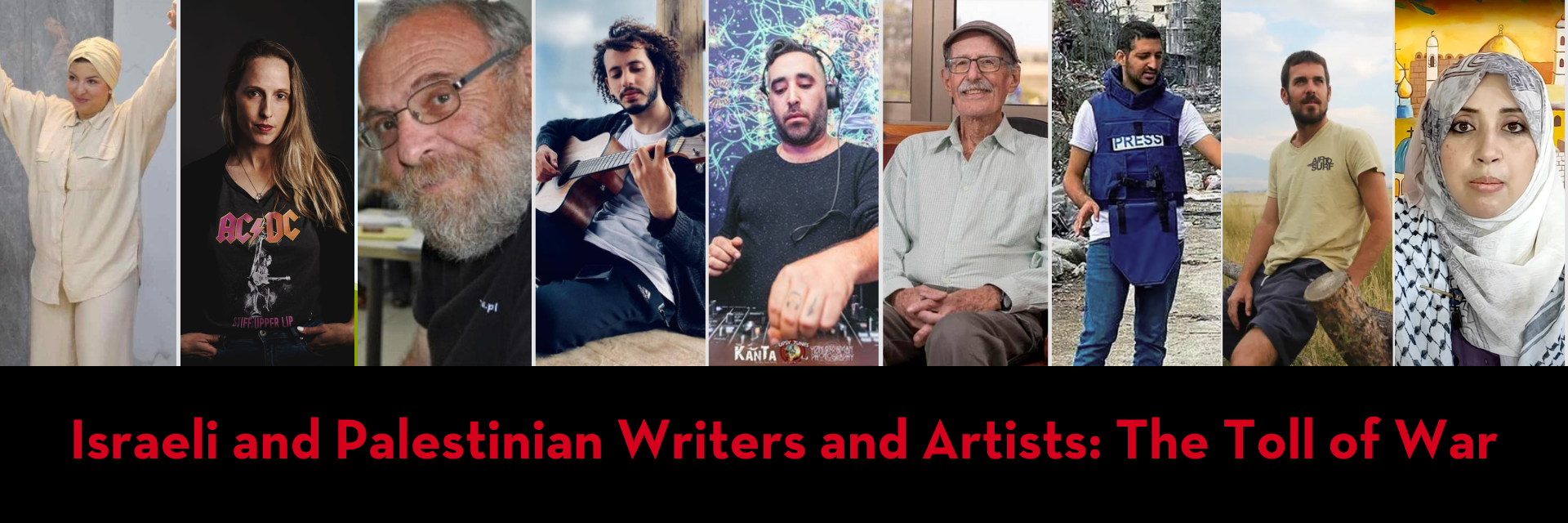
If ever there was a moment for fostering understanding and solidarity, it is now. Yet the people we turn to in dark times – the writers, artists, journalists and creatives whose work motivates empathy, spurs collaboration, and ignites dreams of a peaceful future – are themselves victims of this war. Their voices are being suppressed, and some completely extinguished.
As part of our mission at PEN America to unite writers and their allies, to celebrate creative expression, and defend the liberties that make it possible, we are committed to sharing and amplifying the work of writers affected by the conflict. At PEN America and our Artists at Risk Connection (ARC), we provide crucial resources for artists from all disciplines around the world facing threats to their expressive freedoms and seek to preserve their legacies.
The profiles on this page are of writers, artists, journalists, and thinkers caught in the violence of war between Israel and Hamas. Some have died. Others are missing, injured, or otherwise struggling to survive. We are committed to preserving their legacy and amplifying their work, both as a means of honoring them and as a method of fostering connection and communication.
We plan to update this page regularly, with the understanding that while there are thousands directly impacted by the conflict, we are unable to include them all. Nonetheless, these stories must be told.
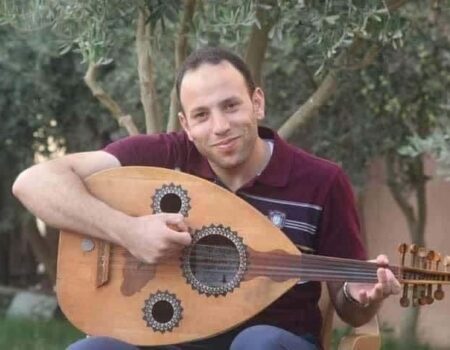
Omar Abu Shawish, Poet and Journalist
Omar Abu Shawish was a writer, educator, and volunteer who was a well-known social activist in Nuseirat Camp in Gaza, where he lived. He graduated with a degree in journalism from Al-Azhar University in Gaza, but expressed himself in poems, novels, and songs.
On Oct. 7, Abu Shawish, 36, was reportedly killed in an Israeli airstrike. He was recognized locally and internationally for his artistic endeavors. He received the Outstanding Arab Youth Award in 2013 and the Best National Song Award in 2007. A co-founder of the Palestine Youth Cultural Network, Abu Shawish dedicated his life to his fellow citizens in Gaza.
Abu Shawish’s cousin, Mhammad, who lives in the United States, found out about his cousin’s death through the condolences he received on his Facebook. He spoke of Omar, saying, “He was an outspoken person who was an activist in organizations taking care of refugees, orphans, and low-income people.”
His novel, Alive in Death was published in 2016. In one of his poems, shared on social media, Abu Shawish asks, “I sing: Who will have mercy on this silence in my heart...?”
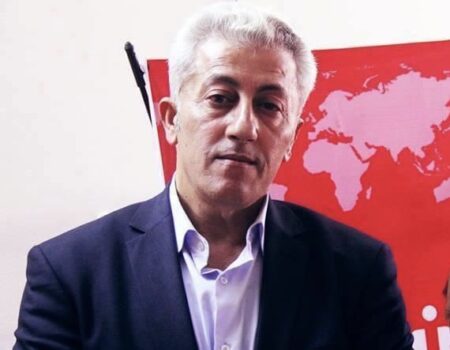
Saleem Al-Naffar, Poet
Saleem Al-Naffar was a renowned poet who advocated for peaceful resistance and whose poetry expressed the struggle of Palestinians to survive and to be remembered in history.
On Dec. 7, Al-Naffar, 60, and his family were killed in an Israeli airstrike on their home in Gaza City. Born in a refugee camp in Gaza, Al-Naffar fled with his family during the 1967 war to Syria. Despite the death of his father when he was 10, Al-Naffar found solace in poetry and later studied Arab literature at Tishreen University in Syria.
In 1994, his family returned to Gaza, where he published poetry collections, novels, and an autobiography in Arabic. Three of Al-Naffar’s poems are available to English-speaking audiences due to a close collaboration with his colleague and translator, Muhammad Jihad Ismael.
His poem Life reads, “Knives might eat / what remains of my ribs, / machines might smash / what remains of stones, / but life is coming, / for that is its way, / creating life even for us.”
Al-Naffar said, “I sometimes sing of our despair. But maybe people like my work because, even so, it never gives in to hatred or calls for violence.”
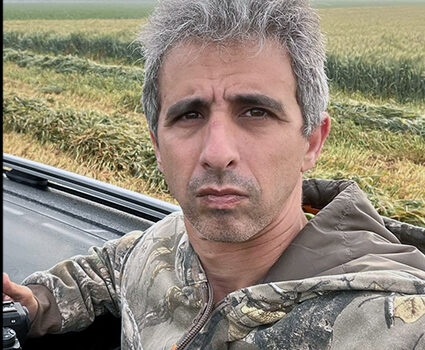
Gilad Kfir, Photographer
Gilad Kfir was an avid photographer who always kept his camera near, whether soaking in hot springs in Costa Rica, at a wine bar in New York, or witnessing danger approaching..
Kfir, 48, was killed when Hamas infiltrated Kibbutz Nativot HaAsarah on Oct. 7. The sound of sirens pierced the early dawn, leading Kfir to walk outside and witness to the unfolding events, unaware the captured images of Hamas militants paragliding over his kibbutz would be his last.
Despite his training as an electronics engineer, Kfir was his truest self behind a camera. He traveled across the world photographing polar bears, bald eagles, pumas, and so much more, creating an extensive gallery of striking photographs. Roy Galitz, renowned nature photographer and friend of Kfir, spoke of Kfir’s passion for photography saying, “He took it to remarkable heights. He was incredibly talented; he was total in his dedication.”
Kfir leaves behind his wife, Jinky, who was far along in her pregnancy carrying their first child on the day of the attack.
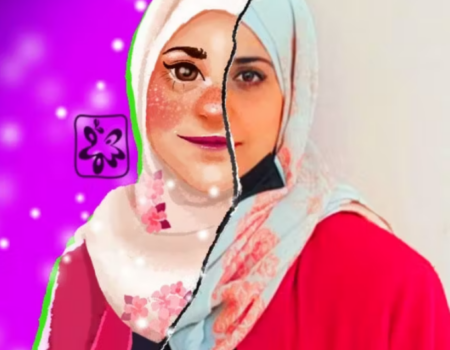
Nesma Abu Shaira, Visual Artist
Nesma Abu Shaira was a visual artist and an educator at the Al-Aqsa University in Gaza. A lecturer at the department of Fine Arts and Graphic Design, she was very proud of her female students, saying she saw “a bright future in them.”
On Oct. 28, Abu Shaira, 36, and her family were killed when an Israeli airstrike struck her home in Gaza City. Born and raised in Gaza, she obtained a degree in fine arts at Al-Aqsa University where she taught fine arts and graphic design after graduating.
As an artist, she especially enjoyed character sketches that included characters from books and mystical creatures such as a water goddess. In 2011, Abu Shaira won third place in the first Gaza Contemporary Art Festival.
Before her untimely death, Abu Shaira was in the midst of various projects such as creating illustrations for a children’s book and working on a new series of artworks “documenting Palestine” in her own way.
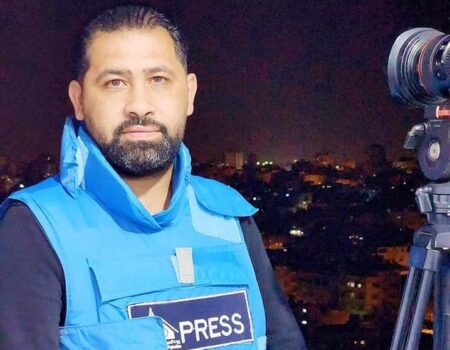
Saeed Al-Taweel, Journalist and Blogger
When Israel launched air strikes on Gaza City, Saeed al-Taweel, editor in chief of Al-Khamisa News, rushed to report the news.
Al-Taweel, 36, and two other journalists, Mohammed Sobboh and Hisham Alnwajha, were killed by an Israeli air strike on Oct. 10. In his final words, Al-Taweel reported that a warning notice had been sent to the Hiji building in Gaza City. The three journalists had been standing away from that target, but the air attack hit a different building.
Al-Taweel kept a blog on Facebook with nearly 150,000 followers where he covered daily news from Gaza. He also contributed to an online magazine called "Al-Saada" (happiness).
He wrote a piece on migration on September 4th, discouraging young Palestinians from illegally migrating and encouraging them to stay in their homeland. His coverage as a journalist included the Great March of Return protests in 2018-2019, and the coronavirus pandemic.
Last year, he defended his masters thesis on how elite Palestinians use digital media. In 2020, he was voted “best Facebook content creator” from the Social Media Club-Palestine.
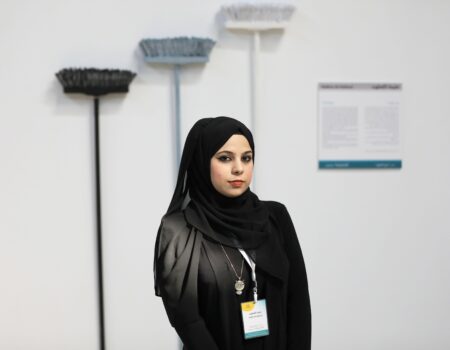
Halima Abdel Karim Al-Kahlot, Visual Artist
Halima Abdel Karim Al-Kahlot created artworks using unconventional materials such as brooms and cardboard to explore themes of social justice.
Al-Kahlot, 29, was killed in an Israeli airstrike in Gaza on Oct. 29. Born in Gaza City, she studied fine arts at Al-Aqsa University and participated in several art exhibitions. A volunteer for the Gaza Training Center at Dar al-Kalima University, she taught art to children and contributed to a mural for the university.
One of her notable artworks, titled "Pending," was featured in the exhibition "Fenced Off." In this piece, she replaced the bristles of a broom with packages of medical prescriptions, a reference to inaccessible medical treatment. In another exhibition, "Fragments of the City," Al-Kahlot created helicopters and knives from cardboard, shedding light on "the paradox between the role of art in sensitively capturing the violence." She also explained that she was drawn to the simplicity of cardboard to shed light on human rights conditions and “draw attention to the deteriorating conditions of women in the Gaza Strip.”
Al-Kahlot's dedication to her fellow citizens persisted through her imaginative artworks, highlighting instances of rights violations, including the right to life, treatment, and women's rights, and encouraging her audience to grasp the difficulties of life under occupation.
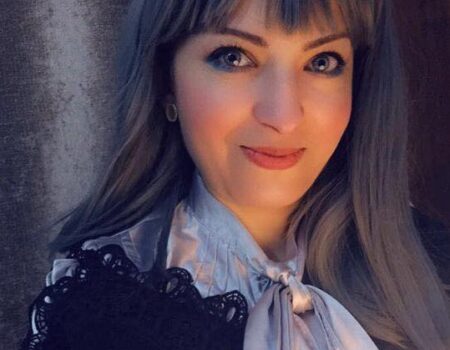
Inas al-Saqa, Playwright and Actress
Palestinian playwright and actress Inas al-Saqa, 53, was killed on Oct. 31 when an Israeli missile struck a residential building where she was sheltering with her children. Three of Saqa’s children were also killed, while two others were injured.
Remembered for her work in theater and film, Saqa collaborated with theater groups to produce and act in plays such as The Bear, Women of Gaza and Ayoub’s Patience, and Everything is Fine. She is best known for the 2014 Palestinian film Sara, which told a powerful story about an “honor killing” in Gaza, and The Homeland’s Sparrow, a film that spanned the period between the 1948 Arab-Israeli war, to 1967, the year of the Six-Day War.
Saqa also channeled her artistic talents through community activities such as theater and leadership workshops with the Ishtar Theater in Jerusalem. She especially enjoyed instilling a love for theater in children.
Khaled Juma, a Palestinian poet and friend of Saqa, expressed his grief on Facebook, “Today, my friend, the curtain has fallen… and the theatre’s stage has darkened.”
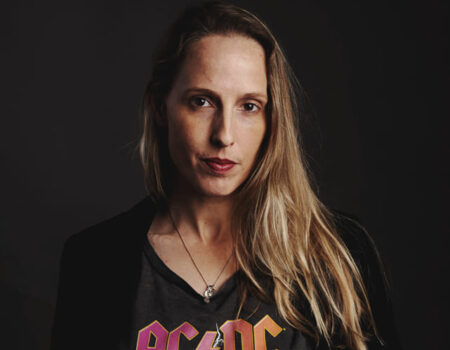
Sofie Berzon MacKie - Visual artist
Sofie Berzon MacKie, a British-Israeli visual artist and curator is a survivor of the Hamas attack on Kibbutz Be’eri.
MacKie is co-director of the Be’eri art gallery and uses photography as a starting point for her art, as in her series Event Horizon, in which she manipulated photos of shell-like organisms using AI. Her work focuses on issues of identity, immigration, home, and motherhood.
In the predawn hours of Oct. 7, MacKie was jolted awake by the deafening roar of explosions. In haste, she and her partner ushered their young daughters and son to safety, sealing themselves inside their home, the windows shut tight. MacKie reached out to other mothers in the kibbutz via WhatsApp, confirming the news that hundreds of terrorists had infiltrated their village. The ensuing hours were an agonizing ordeal for Sofie and her family, marked by the cacophony of violence and the specter of imminent death at the hands of Hamas terrorists. After 20 hours, the Israeli army rescued them and brought them to safety.
As they guided MacKie and her family away from the carnage, the scale of devastation was evident. People had been murdered or kidnapped, homes destroyed, lives upended. The Be’eri gallery had been burnt to the ground.
MacKie and her family are in a hotel now, processing their grief, connecting with neighbors and friends who have survived the attacks, and anxiously waiting to hear news on neighbors who remain missing.
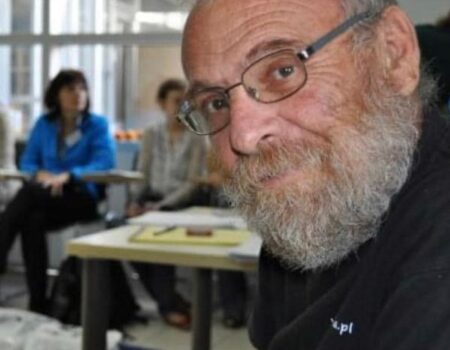
Alex Danzig - Historian
Holocaust scholar and historian Alex Danzig has not been seen or heard from since he was kidnapped in the Hamas attacks on Nir Oz, a kibbutz in southern Israel, on Oct. 7.
Danzig (sometimes spelled Dancyg), 75, spent the last 30 years working for Yad Vashem, Israel's Holocaust remembrance center. Born in Poland after World War II, in 1948, his older sister Edith is a Holocaust survivor. The family was sheltered from the Nazis by a Polish mother and daughter, Maria and Halina Assanowicz, who were recognized by the center as Righteous Among the Nations in 1982.
The family immigrated to Israel in 1957, and Danzig fought in several wars, joined a left-wing youth movement, received a degree in history, and started a family. He returned to Poland and toured Auschwitz in 1986, fueling his interest in Polish-Jewish relations. He led tours to the death camps, educating Israeli and Polish students and wrote several guide books about the area.
His son Mati, who also lived on the kibbutz, is certain that his father was kidnapped, and fears for his health and safety, particularly since he had a severe heart attack and surgery several years ago and needs medication. "Every minute that goes by is dangerous for him," Mati told the BBC.

Yousef Dawas - Writer, journalist, and photographer
On October 14, Palestinian writer, journalist, and photographer Yousef Dawas was killed by an Israeli airstrike on his family home in northern Gaza.
Dawas worked as a writer, photographer and cameraman with We Are Not Numbers, a Palestinian youth-led nonprofit based in Gaza that tells the stories of Palestinians beyond statistics and news headlines. He also contributed to outlets such as Palestine Chronicle.
Dawas cut through the dehumanization and silence that too often affects Palestinians in Gaza by writing deeply moving accounts of his attempts to hold fast to memories amid the destruction of his family’s garden, as well as a Palestinian couple’s struggle to hold onto hope amid a harrowing medical crisis. Tributes from Dawas’ friends and colleagues have poured in, describing him as kind, selfless and compassionate.
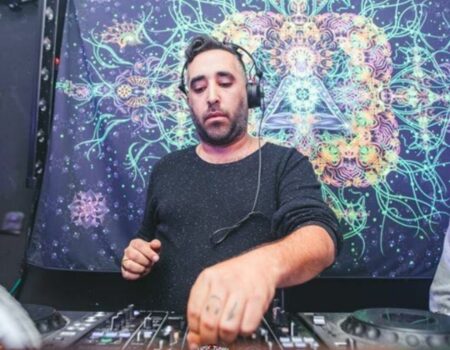
Matan Elmalam, DJ
Matan Elmalam, 42, an Israeli DJ and producer, was killed during the Oct. 7 attack by Hamas at the Supernova music festival near Kibbutz Re’im. He was among the 260 killed at Supernova that morning.
Elmalam, known professionally as “Kido,” was internationally recognized as an influential figure in the trance music scene for the last two decades. He performed in Japan, India, Brazil, and Hungary, and he managed major festivals in Israel. Supernova, the open-air psychedelic trance festival on Oct. 6 and 7, had drawn thousands to celebrate “music and unity.”
Elmalam’s sister described her brother’s deep love for music. Throughout his childhood, Elmalam “was in charge of all the birthdays and class parties'' and “always took care of anything having to do with music.” As a DJ, he helped uplift young artists and worked to improve the reputation of trance music. During the attack, Elmalam helped festivalgoers to vacate the area. According to his sister, an attendee at Elmalam’s funeral told the family that he saved his life.
Elmalam’s father spoke of his son’s passion for music at the funeral, “You'd always say, 'I'd die for music,' and you were right. You were killed during your music, within the party itself.”
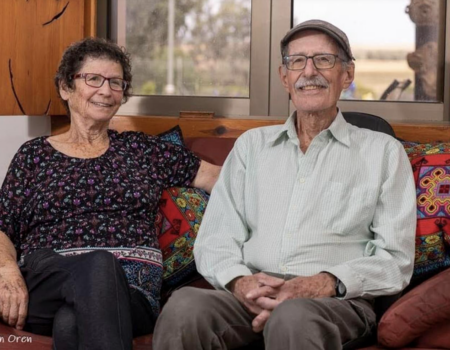
Oded Lifshitz, Retired Journalist
Oded Lifshitz, 83, and his wife, Yocheved, were kidnapped from their home in the Nir Oz kibbutz on the morning of Oct. 7, along with at least 240 Israelis.
A retired Israeli journalist and peace activist, Lifshitz dedicated his life to advocating for peace and the recognition of Palestinian rights. His commitment to these causes was evident in his work for the left-wing newspaper Al-Hamishmar, where he played a prominent role in 1972 advocating for the protection of displaced Bedouin inhabitants in the Rafah region. Lifshitz was also among the first reporters to document the tragic events of the September 1982 massacre in the Palestinian refugee camps of Sabra and Shatila in Beirut.
The couple were among the co-founders of Nir Oz and, despite challenges posed by its proximity to the Gaza barrier fence, Oded and Yocheved continued their commitment to peace activism, volunteering to transport Palestinians in Gaza to Israeli hospitals for medical treatment.
While Yocheved was released on Oct. 23, Oded remains in Hamas custody. Yocheved detailed the harrowing experience of enduring captivity in tunnels and sustaining injuries.
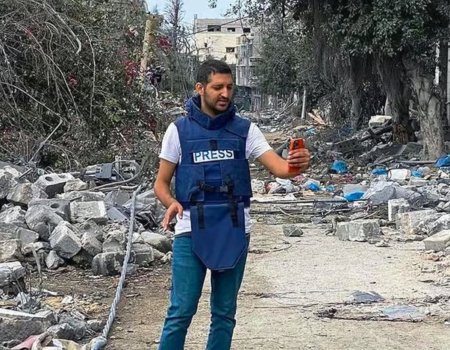
Roshdi Sarraj - Journalist, filmmaker
Roshdi Sarraj, a Palestinian journalist and filmmaker, was killed on Oct. 22 during an Israeli airstrike in Gaza.
According to an obituary in The Economist, Sarraj, 31, came to Gaza with his family "via England where he was born, after fleeing from Jaffa in 1948 during the Nakba." They settled in the Tel al-Hawa neighborhood of Gaza City. He had a longstanding interest in photography, and with a camera in hand he “grabbed beauty wherever he could find it: sunsets, cloudscapes, an orange orchard,” the obituary said.
In addition to his work as a fixer, guiding and setting up interviews for foreign journalists, Sarraj set up a film collective in 2012, Ain Media, with his wife, Shurouq, and his friends, according to The Economist. Their intention was to show Gaza to an outside world that was often barred from entry and from which he was often barred exit, he was quoted as explaining. He continued to film and report on day-to-day life, and Ain Media’s material was picked up by international media outlets and organizations. According to Le Monde, his coverage ranged from telling the story of a 5-year-old girl’s dramatic rescue for Al Jazeera to portraying daily life in Gaza. His work was also featured in Ai Weiwei’s 2017 film “Human Flow.” Sarraj could never fully escape the risks of his work; his childhood friend and Ain Media co-founder Yaser Murtaja died during the 2018 Gaza border fence protests. Another one of his friends and colleagues, Ibrahim Lafi, died during the beginning of the conflict last month at the Erez border crossing.
In their remembrance of Sarraj posted on social media, his colleagues at Ain Media said: “Gaza is life. Roshdi and Yaser are life: they gave voice to the people of Gaza, to their smiles, to the stories locked in fear, to hopes cherished secretly from the oppression of the Israeli occupation.”
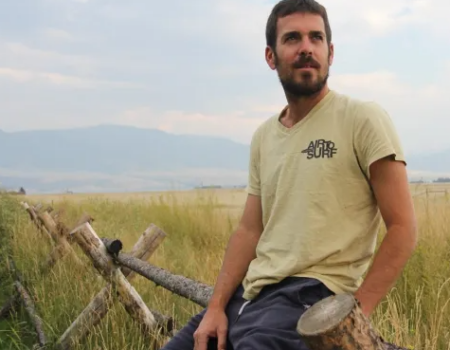
Yahav Winner - Filmmaker
Yahav Winner, an Israeli filmmaker, was murdered in the Hamas attack on Kfar Aza kibbutz on October 7. He died protecting his wife, Shaylee Atary, and their newborn child.
At just 36 years old, Winner was a constant witness to the unrelenting violence that unfolded along the Israeli-Gaza border, with Kfar Aza, his childhood home, bearing the brunt of the Israel-Palestine conflict. The seeds of his trauma were sown when, in his early twenties, a Hamas-fired rocket struck his best friend’s father, killing him instantly. Atary, Winner’s wife and a filmmaker, revealed, “His trauma started there.” This profound trauma became the defining thread of Winner’s work as a filmmaker.
“The Boy,” Winner's final film, explored the depths of trauma and the dissonance of life along the Israel-Gaza border. The film follows a father and son from a kibbutz bordering Gaza, facing the onslaught of rocket fire and combat. While the film primarily portrays the trauma experienced by Israeli residents, it also underscores the heavy toll the Gaza conflict takes on the main character. The film won Best Cinematography at the 2023 Tel Aviv International Students Film Festival.
Winner's films endure as a powerful beacon of shared humanity, casting light on the heartbreak, loss, and shared experiences of ordinary civilians on both sides of the border. His work transcends the screen, leaving an indelible mark on our collective understanding of the human cost of conflict.
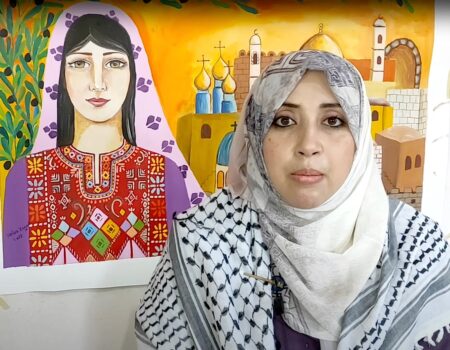
Heba Zagout - Painter
On October 13, Palestinian painter and educator Heba Zagout, along with her two children, lost their lives in an Israeli airstrike that destroyed their home in Gaza.
At 39 years old, Heba Zagout was not only an art teacher at a local primary school but was known globally on Instagram for her powerful and vibrant artworks. Born in the Al Burejj refugee camp in Gaza, Zagout grew up listening to the stories of her elders, chronicling the events that led to the creation of Israel. From an early age, she developed a love for painting and continued to pursue art, using it as a medium to tell the stories of displaced Palestinians, including her own family.
“I tried to express the negative feelings, emotions, and tensions that occur in Gaza,” she said about her work in an interview published weeks before her death. “I consider art a message that I deliver to the outside world through my expression of the Palestinian cause and Palestinian identity.”
Zagout's bright acrylic paintings served as a living testament to Palestinian heritage and history, often incorporating Palestinian villages and towns, and the iconic city of Jerusalem. As the sole breadwinner for her family of six, Zagout sold her paintings to support their livelihood. Her legacy as an artist, educator, and a beacon of Palestinian culture will continue to shine brightly, even in her absence.

